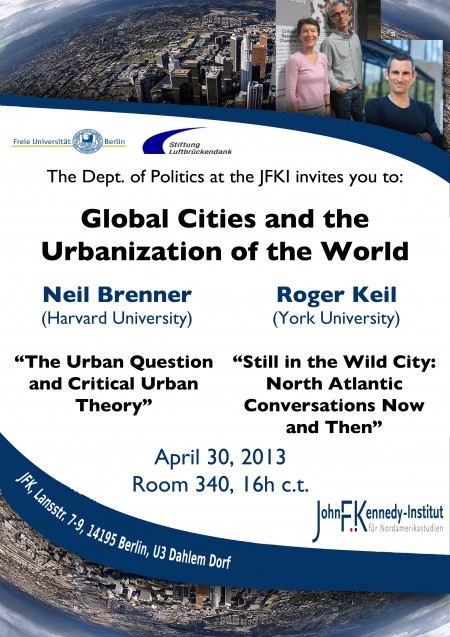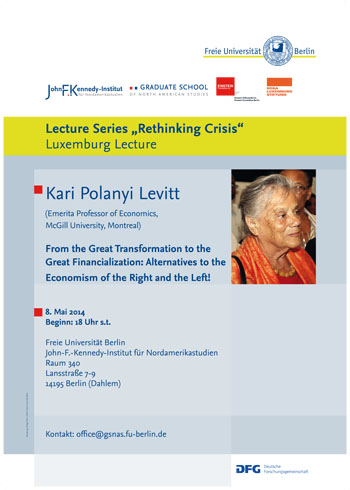Pew Center Publishes Report on State of the News Media
How does the American public receive information about political events? The same way most of us do: through the news media, of course. For better or worse, news media play an integral role in defining the topics we think about and the degree of our shared knowledge and understanding of the world. One might go so far as to state that media provide the infrastructure of our collective consciousness. That is why it is so important to occasionally reflect upon what their role is, how they are changing, and what problems they might face.
For the past eleven years, the Pew Center’s Journalism Project has provided extensive information on all of these questions, through their annually published report on The State of the News Media. The 2014 report was published late last month and, as usual, is a treasure trove of data and statistics for anyone interested not just in the media, but in any aspect of US politics and society. After long years of stark downward trends, turmoil and crisis, this year’s report should provide some slight glimmers of hope for the news industry. New business models are beginning to take hold and various new revenue sources for journalism seem to be emerging. However: not only is most original reporting still being done by still struggling „traditional journalists,“ the report also notes that the somewhat troubling concept of „native advertising“ is on the rise, through which PR and Journalism are increasingly entering into a „Faustian pact:“
„One of the greatest areas of revenue experimentation now involves website content that is paid for by commercial advertisers – but often written by journalists on staff – and placed on a news publishers’ page in a way that sometimes makes it indistinguishable from a news story.“
Meanwhile the ways in which Americans are exposed to, consume and debate news are continuing to change. This is especially evident in the increasing importance of of social networks and citizen journalism, which may also increase tendencies for individuals to stay within digital enclaves and to only be selectively exposed to information.
Anyone working in the fields or intersecting fields of political communication and political science will likely be aware of the report(s) already. So for everyone else: this might not be must-read material, but it is certainly is should-have-a-look-at material, in which case I would recommend the concise overview and subsequent selective exposure to whatever aspect might subjectively seem most important.
SGI 2014 Survey just published
The SGI is a platform built on a cross-national survey of governance that identifies reform needs in 41 EU and OECD countries.
The SGI brings together a broad network of experts and practitioners aiming to understand what works best in sustainable governance. Advocating the exchange of best practices, we offer full access to our data set and enable the comparisons that generate innovation in governance.
You can download the USA reprot 2014 (written by Paul Quirk and Christian Lammert):
SGI2014_USA
Additional informations and data on the United States can be found here:
Beziehungen auf dem Prüfstand. Obama in Europa. Ein starker US-Präsident an der Spitze einer engen transatlantischen Partnerschaft?
Barack Obamas Europa-Reise findet zum genau richtigen Zeitpunkt statt. Gleichwohl steht sie unter keinem günstigen Stern. Der amerikanische Präsident sieht sich mit einem ganzen Paket an brisanten Problemen konfrontiert.
Ganz oben auf der Agenda die von Wladimir Putin provozierte Krim-Krise, in deren Folge Russland jetzt aus der Gruppe der führenden Wirtschaftsnationen hinausgeworfen wurde. Das neue – alte – Format heißt wieder G-7. Ganz im Selbstverständnis des „global leader“ hat Obama Moskau zur aggressiven Regionalmacht herabgewürdigt und zugleich den eigenen Führungsanspruch bekräftigt.
Wie stark aber ist Obama noch? Hat er weiterhin die Autorität, in der verbleibenden Amtszeit die westliche Wertegemeinschaft anzuführen? Oder ist der US-Präsident längst eher ein Getriebener? Wie eng ist das Verhältnis zu den Europäern, wie lang sind die Schatten der NSA-Schnüffler, was wird aus dem transatlantischen Freihandelsabkommen?
Über diese und andere Fragen diskutieren im Wortwechsel
– Melinda Crane, Journalistin Deutsche Welle
– Ines Pohl, Journalistin Die Tageszeitung
– Prof. Christian Lammert, Politikwissenschaftler, FU Berlin
– Christoph von Marschall, Journalist / Der Tagesspiegel






 Die
Die